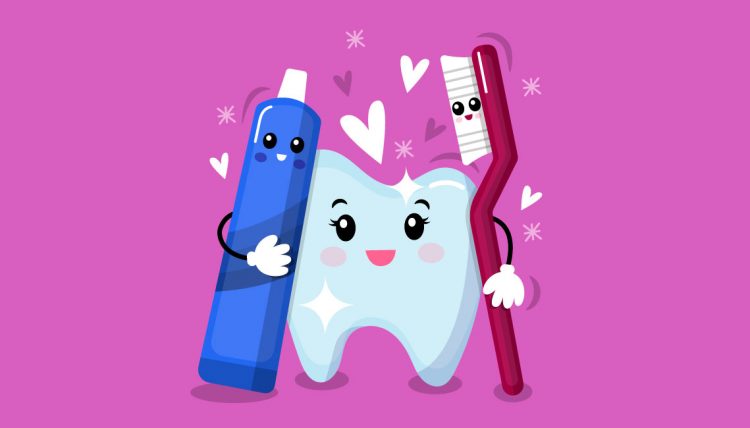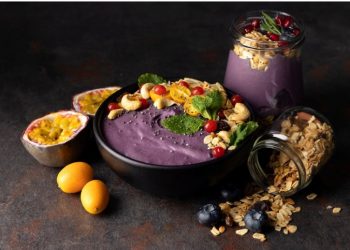When it comes to first impressions, there is almost nothing as important as having healthy teeth. A compelling smile, showing off your pearly whites, makes a lasting impression on people and shows off the confident, friendly, and powerful person that you are.
But if your gnashers are not as white and healthy as you would like, you might hesitate to say cheese, and this can affect your social relationships, career, and a lot more.
When it comes to healthcare, dental hygiene is quite possibly the most neglected routine. If you have naturally good teeth, you might not see the need to worry, but it’s necessary to have a few daily habits so that you can enjoy healthy teeth your entire lifetime. Please don’t take it for granted.
If your teeth have already given you problems and you’ve had dental surgery (like fillings or root canals) done, you know more than anyone else how important it is to take care of your gums and teeth. Nobody likes going to a dentist more often than you have to, right?!
So, here are five of the most effective habits you can follow to can maintain your dental health, especially after eating:
1. Brush after eating
In addition to brushing twice a day, you might’ve heard that it’s a good idea to brush your teeth immediately after each meal. It is true for some foods, like those rich in sugars.
However, if you’ve eaten citrus fruits or any other drink or food that is acidic, wait at least 40 minutes before you brush. It is because acid makes your enamel weak, and so brushing immediately after can accelerate the loss of dentin. By waiting for half an hour, you give your saliva enough time to neutralize the acid and thus protect your enamel.
Hold your toothbrush at roughly 45° and go around in circular motions making sure you cover the inner, outer, and chewing surfaces of the tooth. Gently clean your gums and tongue to remove plaque that can cause bad breath.
If you find brushing difficult because of a condition like arthritis, consider using a battery-operated or electric toothbrush to prevent tooth and gum disease. Ideally, try to use a toothpaste containing fluoride.
2. Floss after dinner
 Flossing is essential to reach the tight spaces between your teeth where your brush can’t go. Remove food and debris trapped here by using an 18 to 24-inch piece of dental floss.
Flossing is essential to reach the tight spaces between your teeth where your brush can’t go. Remove food and debris trapped here by using an 18 to 24-inch piece of dental floss.
Wind it around both the middle fingers and use the index fingers and thumbs for grip and to keep it taut. Clean the gaps between two teeth by going up and down once, without going into your gums. Make sure you use a fresh section of floss for each tooth.
Floss once a day, typically before you sleep. If it isn’t done correctly, then it can lead to damaged gums & enamels. Make sure you teach children how to floss the correct way, or they can end up requiring dental surgery for enamel restoration.
Choose the right snack
The germs in your mouth love snacks rich in sugar or starch as it helps them form acid over your teeth. This acid can attack your teeth for up to twenty minutes after you eat, eventually destroying the natural enamel on it, causing decay and cavities.
If you let it go on for an extended period, your bone, your gums, and other supporting structures will also undergo a slow breakdown – which is not good at all, as it can cause a lot of pain.
While it’s best to avoid snacks between meals altogether, it’s practically impossible to follow through. So, when the craving strikes, go for something nutritious like vegetables and fruits rich in healthy fiber. Not only do they act as “natural toothbrushes” by clearing out food residue, but the firmness of it also gives our jaws a good exercise, too.

Other recommended foods include plain yogurt, milk, cheese, and other dairy products without added sugar, nuts, popcorns, and black and green teas. Avoid the villains – say no to alcohol, carbonated drinks, potato chips, and anything else that has a lot of sugar or that can get stuck between your teeth.
Hard candies also pose an additional risk – they can cause your tooth to chip, requiring you to get emergency dental surgery to fix it.
3. Drink lots of water
The best beverage to maintain not just oral health but also overall health is water. This is because it has zero calories and no sugar in it.
Drink fluoridated drinking water after every meal to clean out your mouth and dislodge food particles. Water (or food) containing fluoride makes your teeth stronger and reduces the risk of cavities.
Drinking water also helps prevent dry mouth – which is when you don’t have enough saliva in your mouth to chew and swallow food easily. What’s more, water can also prevent bad breath.
4. Avoid chewing gum (unless it’s sugarless)
Chewing gum can be harmful or helpful to your teeth, depending on what type it is. Most kinds available in the market contain a lot of sugar that deposits on your teeth and increases your chances of developing cavities.
However, if you can find a sugarless variety, it’s a good idea to take one after each meal. It is because the action of continuous chewing activates the salivary glands to produce a lot more saliva, which then neutralizes and cleans all the acid and food particles that had built up in your teeth from your meal.
Final words
Our teeth do more than help us chew our food. They help us speak clearly and give shape to our faces. They influence our quality of life. This is why, along with regular visits to the dentist, it is also vital to adhere to the five methods discussed above to ensure proper oral hygiene and avoid expensive dental surgery. If you’re looking for a reliable dentist right now, you can check out this one that offers services like veneers, teeth whitening, and dental implants in Lancaster.










Discussion about this post